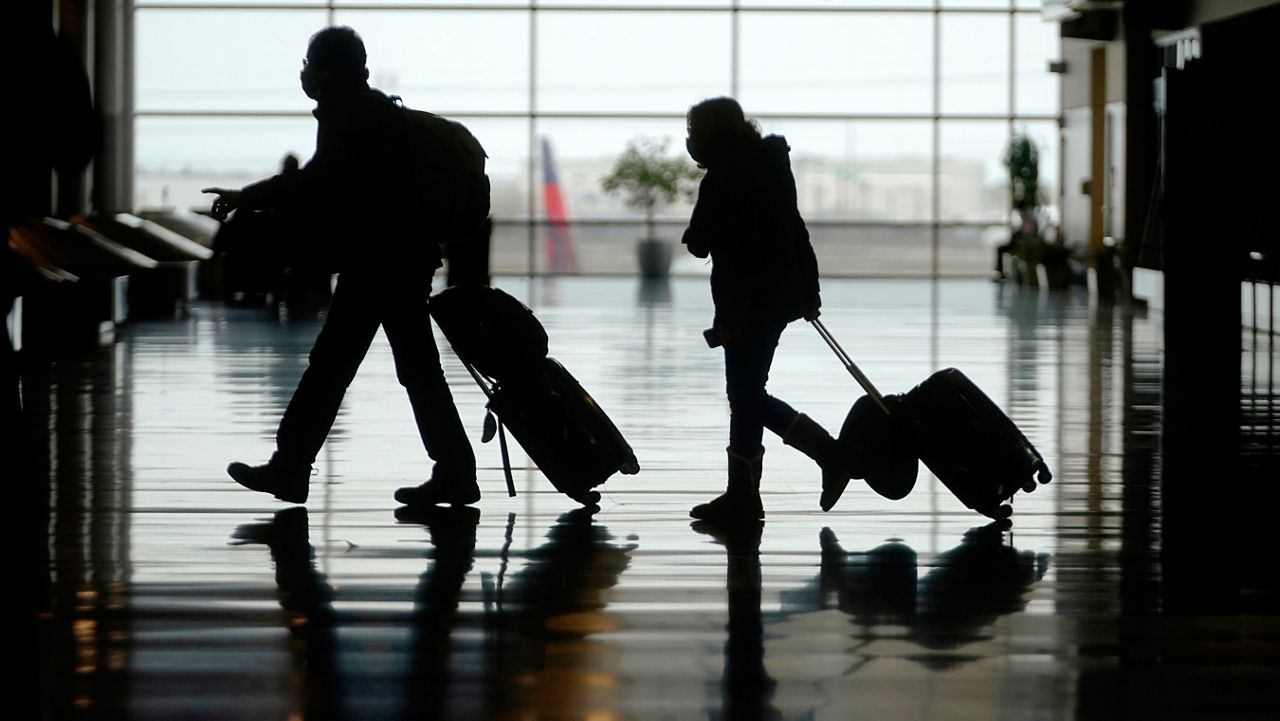CHARLOTTE, N.C. — People should try to avoid traveling over the spring break holiday and take extra precautions if they do, according to a release from Mecklenburg County Public Health on Friday.
Officials say traveling greatly increases the risk of exposure and the possibility of contracting COVID-19.
Risks, according to the county health department, include:
- Increased contact with larger number of people who may be infected in venues, such as airports, train stations, bus terminals, conferences, events, etc.
- Inability to social distance yourself from others, e.g. on an airplane or being in close quarters with others on a cruise
- Spreading the disease to others, even if you are asymptomatic
- Travel could be suspended or interrupted, quarantines put into effect and borders closed at any time leaving you stranded or required to stay out of the U.S. and/or away from home for extended periods of time
For these reason, health officials in Mecklenburg County are asking residents to avoid travel over spring break. If you do choose to travel, officials ask that you take the following steps to help protect yourself and others:
- If you are eligible, get fully vaccinated for COVID-19 before you travel. Eligible individuals may find more information about setting an appointment or joining the waitlist for a COVID-19 vaccination at: MeckNC.gov/COVID-19.
- Get tested with a viral test 1-3 days before you travel. Keep a copy of your test results with you during travel in case you are asked for them. Do NOT travel if you test positive.
- Check travel restrictions before you go. State, local, and territorial governments may have travel restrictions in place, including testing requirements, stay-at-home orders, and quarantine requirements upon arrival. Follow all state, local, and territorial travel restrictions. If traveling by air, check if your airline requires any health information, testing, or other documents. Local policies at your destination may require you to be tested for COVID-19. If you test positive on arrival, you may be required to isolate for a period of time.
- If you plan to travel internationally, you will need to get tested no more than three days before you travel by air into the U.S. and show your negative result to the airline before you board your flight, or be prepared to show documentation of recovery (proof of a recent positive viral test and a letter from your health care provider or a public health official stating that you were cleared to travel). See CDC International Travel.
- Practice the 3Ws: WEAR a face covering; WAIT six feet apart and avoid close contact; and WASH your hands often or use hand sanitizer.
- Get tested again with a viral test 3-5 days after you return from your trip and stay home and self-quarantine for a full seven days after travel, even if your test is negative. If you don’t get tested, stay home and self-quarantine for 10 days after travel.
More information on COVID-19 safety guidelines, including travel, are available on the Centers for Disease Control and Prevention’s website.
Justin Pryor - Digital Media Producer
Justin is a Charlotte-based digital media producer. He is a South Carolina native who worked in similar roles at a Charlotte TV station before joining Spectrum News 1 in 2019. Justin is a graduate of the University of South Carolina.





